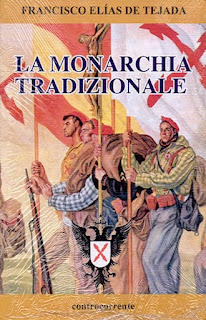Translated from the Italian*
The Traditions of Naples
Solitude in Via Toledo
Deepening the Neapolitan tradition is for me a passionate commitment, cherished since childhood. When I had not yet fixed my gaze towards the solemn summit of Vesuvius, Naples was for me a desired image before it was known. The call of blood, deep, alive, pressing, pushed me to look for news about that blue and gold country where the memories of my ancestors and the curiosity of the spell weaved legends. Without having set foot in via Toledo, I already knew it to be blazing and noisy, like the image I had inherited in my conscience. In the corner of Extremadura, where I spent my adolescence, I already felt Neapolitan at heart.
The insatiable curiosity that God has given me worked on the plot of instinctive love. When it was possible for me, I went to Naples with the feeling of one returning to the lares from which he had left. My ancestors had left Naples in the tormented days of our lord Philip IV, to settle in the lands of Extremadura and I, in 1956, was returning to Naples to satiate the desire fueled by a flame that had been burning for three centuries.
It is true that the Naples that I found in the bosom of the Italian republic in 1956 was far different from the image that those who had left it in one day in 1640 to fulfill the duties of the hidalguia had handed down to me. It was not the kingdom of Naples, but a province dependent on lords who ruled it from Rome, where the official language was Tuscan and the soldiers wore Piedmontese uniforms. It was not the capital of the first of the states of the Italian peninsula; it no longer had parliaments in San Lorenzo, nor national kings, nor its own laws, nor — and this is more important — the beautiful serenity of knowing that it was the bearer of a historic mission. Her commitments were parochial, her internal and uncivil struggles, her flag, a flag that modern conquerors had imposed on her, her diminished mentality, her peculiarities confused in a decadent half-light. She whirled to the sound of foreign music. The only thing that remained of that robust personality of hers, whose image had been transmitted to me by my ancestors, was the popular grace, but unfortunately this grace was despised by the Neapolitans themselves, the first actors in the dramatic collective suicide that reduced Neapolitanism to the "Folklore". It was Naples' portrayed by the realism of Salvatore di Giacomo, in that unfortunate Peppenella who trolls the sidewalk without bread or water, covered in carnivalesque love sold under the exotic name of Irma:
D' 'a lucanna, aieressera,
mmiez' 'a via nne fuie cacciata:
mmiez' 'a via sulagna e nnera
tutt' 'a notte Irma è restata.
Tutt' 'a notte ha fatto 'a cana:
sotto e ncoppa ha cammenato
na serata sana sana.
E nisciuno s' è accustato...
Irma: nomme furastiero:
ma se chiamma Peppenella:
fuie ngannata 'a nu furiero,
e mo... campa... (puverella!)
Passa gente. È fatto iuorno.
“Psst! Siente!..." E rire... e chiamma...
C' ha dda fa' si ha perzo 'o scuorno?
C' ha dda fa'? Se more 'e famma.
Mmerz' 'e nnove s' ha mangiata
na fresella nfosa a ll' acqua.
E mo, comme a na mappata,
sta llà nterra. E dorme, stracqua. [1]
The people, ignorant of a past in which Naples was free and independent, drags their pain without hope, like the poet's Irma, wrapped in an orientalizing and bitter fatalism; the middle class, drunk with Garibaldinism, in search of personal advantages, continues to wander in the black legend forged in the nineteenth century against traditional Naples; the decadent or fallen aristocracy, oscillating between the frenzy of denying their glories to be more in harmony with the times and a deadly isolation; the clergy, engaged in a Christian Democratic Vaticanism that dreams of a Guelph republic in which Naples does not count. In the confused chaos, some are Socialists and others Savoyard monarchists, some Papalines, others Garibaldians, some turned towards Moscow and others towards the Vatican ... but no one thinks of Naples, no one is Neapolitan.
[*] La monarchia tradizionale, Francisco Elías de Tejada, Controcorrente Edizioni, 2001, p. 131-133
[1] Salvatore Di Giacomo, Works, Verona, Arnoldo Mondadori, 1957, 2 volumes, quoted in I, p. 192.
Addendum:
Irma**
She was thrown out of a tavern
last night, into a blacked out street;
she struggled erect,
and groped for trade.
All night long she acted
a bitch in season;
accosting strangers,
who shouldered by roughly.
Irma: an exotic name,
catchy for Johns,
her real name was Peppenella;
a commissary clerk deceived and dumped her,
And now, she lives from trick to trick,
out street is busy during the day:
“Psst — you there —” said with wrenching gaiety.
Is there more to regret, she lost her shame!
She ate when? About nine last night,
a stale biscuit soaked in water; she sleeps now
on cold stone; her skirt high on thin thighs.
[**] Translated by Frank J. Palescandolo, The Naples of Salvatore Di Giacomo: Poems and a Play, Forum Italicum, p. 79










